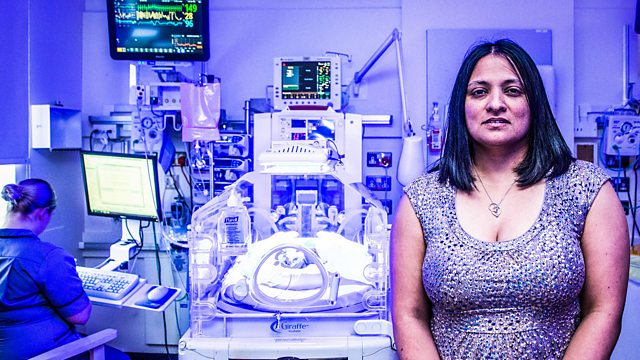
Three transplants are due at the Royal Liverpool University Hospital. At the Women’s Hospital, a pregnant mum faces a heart-wrenching decision
Now in its fourth series, the award-winning Hospital, for the first time, charts the day-to-day life of six NHS Trusts across an entire city – Liverpool - whose hospitals have a catchment area covering more than two and half million people, stretching beyond the city to north Wales, Cheshire and to the Isle of Man.
It is an unusual day at the Royal Liverpool University Hospital. Three kidney transplants are due to happen in one day. The Royal is home to one of 24 kidney transplant centres in the UK. Transplant surgery is classified as an emergency but there is only one emergency operating theatre at The Royal, shared by ten departments. If that theatre is overloaded then planned surgeries in other theatres will be cancelled to make way for transplants. Increasing rates of obesity, type 2 diabetes and an ageing population has meant the number of transplants at The Royal’s renal unit has doubled in the 20 years it has been going.
24 hours ago Pamela, who is in her mid-fifties, had no idea she would now be in the Royal waiting to go into theatre. A kidney matching Pamela’s tissue type has just been donated. Two thirds of kidneys available for transplants are from people whose families agreed to support donation after they died. There is a 12-hour optimum window for a kidney transplant once it has been removed. Often organs travel more than five hours across the country so as the clock ticks, The Royal’s transplant team and Pamela have to be ready. She has only been on the transplant waiting list for six months since a bladder problem damaged her kidneys. She had been told it would be two to three years. Her kidneys are now only functioning 5%.
33-year-old Collette is a mum of two girls and a boy and also waiting to go into theatre. Her operation is planned. As a live donor, Collette is about to give one of her kidneys to her older brother, 38-year-old Michael, who has end stage kidney failure. He was diagnosed four years ago and has had to dialyse for four hours, four times a week for the last year. There is no cure. A transplant is his only chance. Less than an hour after Collette’s kidney is removed it will be transplanted into Michael.
But a patient is rushed in needing an emergency appendix removal. Until there is space on the emergency theatre list, the brother’s and sister’s planned donor surgery will have to be postponed to make way for the new emergency. The 12-hour clock is ticking down for Pamela and her new kidney when news comes in of a potential cardiac arrest in an ambulance, which could take precedence over Pamela on the emergency list.
27-year-old Lauren is across the city in the Liverpool Women’s Hospital. It is the only hospital trust in the UK that specialises in caring for women and babies and looks after the region’s most complex pregnancies. Lauren is 33 weeks pregnant with twin boys, Bobby and Albi. Bobby is perfectly healthy but early on it was discovered that his brother Albi had a fatal condition called anencephaly, where the top of his skull had not developed properly. Soon after birth Albi will die. Lauren and her fiance Gary want to donate Albi’s heart valves to help children with cardiac conditions and his liver cells to help patients of any age with liver failure. When Lauren starts to feel increasing pain, her consultant obstetrician at The Women’s brings forward her caesarean date but it may mean that Albi will be too young and too small to donate his heart valves and liver cells. The doctors have to balance this with the welfare of Lauren and the healthy baby boy, Bobby.
There are more than 6,000 people on the transplant waiting list in the UK. Nationwide, three people a day die due to a lack of transplant organs. Currently, the renal unit at the Royal has three unfilled surgical posts.
Shown from multiple perspectives, audiences witness the complexities of the dilemmas and decision-making, which happen every day for consultants, surgeons and managers and the impact these decisions have on patients.
Against the backdrop of historic demands stemming from limited resources, increasing patient numbers and social care at full stretch, the series will show the extraordinary work of some of Liverpool’s 20,000 NHS hospital staff as they push the boundaries of what is possible with world class, cutting edge treatments and life-saving operations.
Hospital is a co-production with the Open University.
Last on
Credits
| Role | Contributor |
|---|---|
| Executive Producer | Lorraine Charker Phillips |
| Executive Producer | Simon Dickson |
| Executive Producer | Jackie Waldock |
| Series Editor | Sunshine Jackson |
| Series Producer | Meghan Just-Truelove |
| Series Producer | Gayl Paterson |
| Production Company | Label 1 |
Explore extensive resources and information on healthcare and nursing with The Open University
Visit the Open University website.
